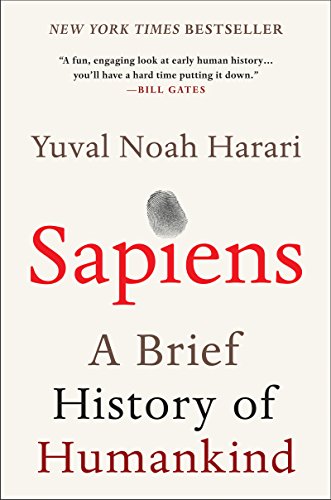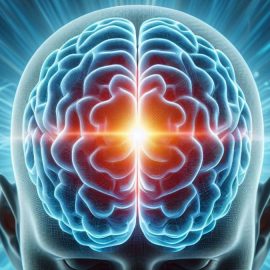

This article is an excerpt from the Shortform summary of "Sapiens: A Brief History of Humankind" by Yuval Noah Harari. Shortform has the world's best summaries of books you should be reading.
Like this article? Sign up for a free trial here .
What is the relationship between mindfulness and happiness? Can being more mindful make us happier? Can it reduce suffering?
Mindfulness and happiness are a well-researched pair, and many people believe that being more mindful can contribute to your happiness. According to this theory, mindfulness can help you keep from grasping at pleasure and avoiding pain, which are the roots of suffering.
We’ll cover how mindfulness and happiness are related and explore some other theories of happiness.
Mindfulness and Happiness
Many theories of happiness are dependent on our feelings. As a society, we privilege our feelings, urging individuals to be true to themselves and follow their hearts. We judge what is good and moral based on our feelings.
Although this is our prevailing worldview now, it’s an oddity in history. For most of history, religions have given objective standards for what makes something good and moral. This makes sense. Surely not everything that feels good is good. If we ask heroin addicts when they’re happiest, they’re going to tell us it’s when they shoot up. Does that make heroin the key to happiness?
Buddhism is a famous example of a religion that doesn’t give precedence to pleasurable feelings in determining happiness. According to the Buddhist view, when we identify who we are with what we feel, we cause ourselves to suffer. This is the connection between mindfulness and happiness.
Feelings are not all-important. They’re just sensations. We shouldn’t be attached to good feelings or averse to bad feelings. Craving pleasure leads to suffering—we’re either discontent because we don’t have the pleasure we want, or we’re anxious about losing the pleasure we have. The root of suffering is chasing and grasping at pleasure while we run from and try to rid ourselves of pain.
Happiness isn’t an emotional state and comes not from pleasurable feelings but from accepting the sensations as they are, without attributing value to them. This kind of acceptance requires mindfulness, which may lead to happiness. In this way, we live in the present moment, not anticipating pleasure in the future. We focus on knowing ourselves and knowing that we are not our sensations and emotions.
The theory of mindfulness and happiness isn’t the only advice on how to be happy. Let’s look at other theories of happiness.
Expectations of Happiness
Along with work on mindfulness and happiness, one of the most significant findings in the study of happiness is that long-term happiness is based on the gap between our expectations and reality. If the gap is large and reality is far from meeting your high expectations, you’re unhappy. If the gap is small or nonexistent, you’re happy. For example, if you expect to get an ox cart from your father when you come of age and you get an ox cart, you’re happy. But if you expect to get a new Ferrari on your 16th birthday and you get a used Toyota, you’re unhappy.
Solving this problem isn’t as easy as just lowering our expectations. When our lives get better, we expect more. So the more we get, the more we want. The theory of mindfulness and happiness can help us manage our expectations and avoid clinging to future desires.
We may be unhappier than our ancestors merely because expectations are so much higher. This is due, in part, to the media and advertisements. They manipulate our expectations and erode our contentment. A teenager living 5,000 years ago judged his appearance against his fellow villagers, most of whom were old and wrinkled or still children. Most teenage boys of the past probably felt pretty good about how they looked. In contrast, today, a teenager is bombarded by images of movie and sports stars on TV, the internet, and billboards. He’s much less likely to feel confident in his appearance because the expectations are higher. We don’t compare ourselves against our ancestors. We compare ourselves against our contemporaries. The theory of mindfulness and happiness can help us stop comparing ourselves to others and avoid setting expectations based on the material things others have.
Biological Happiness
According to biologists, our happiness is determined by the biochemical reactions caused by hormones like oxytocin, serotonin, and dopamine. This implies that happiness comes from pleasurable feelings—whether we win the lottery or fall in love, happiness comes not from the experiences themselves but from the resulting flood of hormones and electrical signals in our brains.
Unfortunately, we have evolved to remain in a relatively static state of happiness. Like an air conditioner, our biomechanical system is programmed to return to a set point, and every individual has a slightly different set point. Some air conditioners are set to 70 degrees Fahrenheit and some are set to 20. Similarly, some people’s happiness levels are set to fluctuate between levels 6 and 10 and level out at 8, whereas other people’s levels fluctuate between 3 and 7 and level out at 5. This means that some people are wired to be happier and some wired to be gloomier, regardless of external circumstances like money or health. But the theory of mindfulness and happiness can help us here, too. Even if we’re wired to be gloomy, we can practice nonattachment to our pain and reduce our suffering.
———End of Preview———

Like what you just read? Read the rest of the world's best summary of "Sapiens" at Shortform . Learn the book's critical concepts in 20 minutes or less .
Here's what you'll find in our full Sapiens summary :
- How Sapiens outlived and outlasted the 8+ other human-like species on Earth
- The 3 critical revolutions in human existence that led to our domination of the planet
- How much of what powers our world today is really just a shared mass delusion
- What the future of humanity might look like






